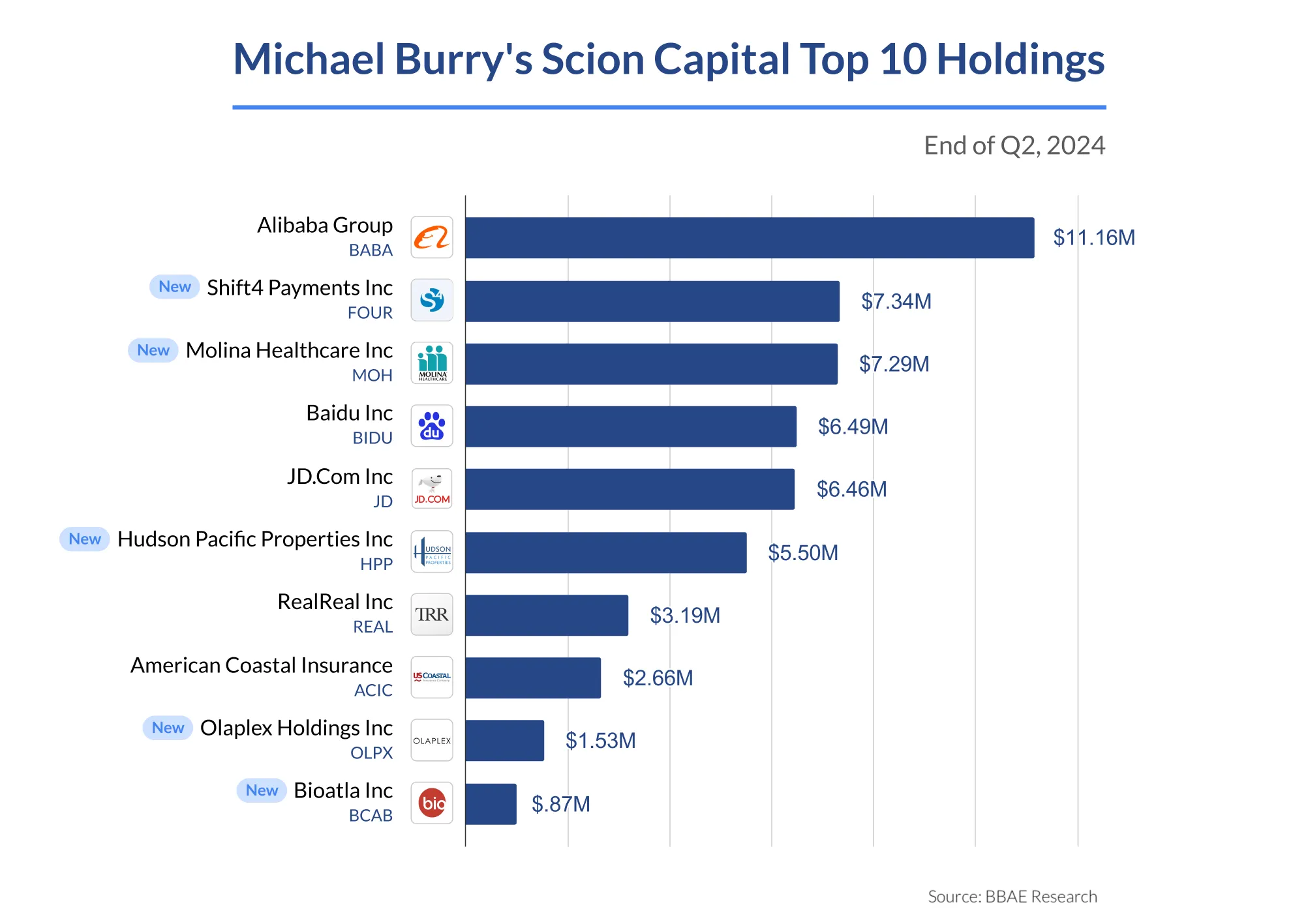October 14, 2024
This dramatic shift has sparked intense speculation and debate among investors and analysts about the state of the market and the potential for a "reverse market crash."

Michael Burry, the legendary investor known for predicting the 2008 housing crash, has once again captured the attention of the financial world with his recent portfolio moves. In the third quarter of 2024, Burry significantly reduced his stock holdings, cutting his portfolio from $102 million to $53 million4. This dramatic shift has sparked intense speculation and debate among investors and analysts about the state of the market and the potential for a "reverse market crash."
Burry's Scion Asset Management made several notable changes to its holdings:

The concept of a "reverse market crash" is gaining traction among some market observers. Unlike a traditional market crash characterized by rapid, steep declines, a reverse crash involves a slower, more insidious erosion of value. This theory suggests that:
As with any market prediction, experts are divided on the likelihood and nature of a potential market downturn:
Bearish Views:
Bullish Perspectives:
It's crucial to remember that even renowned investors can be wrong. For instance:
Michael Burry's recent portfolio moves offer a fascinating glimpse into the mindset of one of the market's most watched investors. While his shift away from U.S. stocks and towards Chinese tech is noteworthy, it's essential to remember that no single investor, no matter how renowned, has a perfect track record.The concept of a "reverse market crash" presents an intriguing alternative to traditional market downturn scenarios. However, as with all market predictions, it should be viewed with a critical eye and considered alongside a wide range of economic indicators and expert opinions. For individual investors, Burry's moves serve as a reminder of the importance of diversification and the need to regularly reassess one's portfolio in light of changing market conditions. Whether a significant market correction is imminent or not, maintaining a balanced, long-term approach to investing remains crucial for navigating the ever-changing financial landscape.